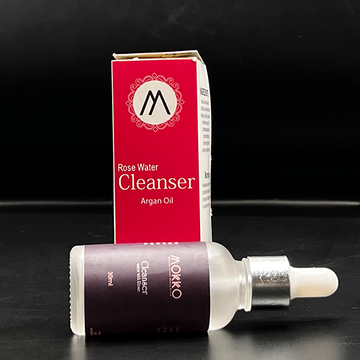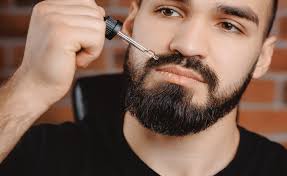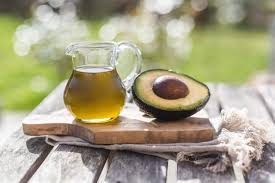Bentonite clay face mask are gaining popularity in skincare routines for their detoxifying and skin-healing properties. If you're looking to improve your skin's clarity, reduce acne, or just pamper your skin with a natural remedy, a bentonite clay face mask is the perfect choice. Packed with minerals, this mask is known for its ability to absorb excess oils and toxins, giving your skin a refreshed, glowing appearance.
What Is Bentonite Clay and Why Is It Used in Face Masks?
Bentonite clay is a type of volcanic ash clay that has been used for centuries due to its detoxifying properties. It forms a thick paste when mixed with water and is rich in essential minerals like calcium, magnesium, iron, and potassium. When applied to the skin, bentonite Clay Mask acts as a magnet, drawing out impurities, toxins, and excess oils.
How Bentonite Clay Works on Your Skin
Bentonite clay works by adsorbing (binding to) toxins, bacteria, and excess oil from your skin. When you apply it as a face mask, the clay dries and tightens, providing a deep cleanse. It helps balance your skin’s pH level and promotes blood circulation, which aids in the renewal of skin cells.
Benefits of a Bentonite Clay Face Mask
1. Absorbs Excess Oil and Reduces Acne
One of the top reasons people use bentonite Clay face mask is to control oily skin. The clay’s oil-absorbing properties help reduce the amount of sebum on your skin, making it particularly beneficial for those prone to acne and blackheads. Regular use of a bentonite clay face mask can minimize the appearance of pores and keep your skin matte.
2. Deep Cleansing and Detoxification
Bentonite clay is a powerful detoxifier. It attracts and binds to toxins and impurities in your skin, helping to clear blocked pores and reduce inflammation. Whether your skin is dealing with excess oil, dirt buildup, or environmental pollutants, bentonite clay provides an effective cleansing solution.
3. Soothes Inflammation and Reduces Redness
Bentonite clay has natural anti-inflammatory properties that help calm irritated and inflamed skin. If you have conditions like acne, rosacea, or eczema, the clay can reduce redness and swelling, promoting a more even skin tone.
4. Hydrates and Improves Skin Texture
Bentonite clay is rich in minerals that nourish the skin. When used in a face mask, it helps to restore moisture to the skin, leaving it feeling soft and smooth. The mask also promotes the production of collagen, improving your skin's elasticity and reducing the appearance of fine lines.
How to Make and Use a Bentonite Clay Face Mask
Creating your own bentonite clay face mask is easy and cost-effective. Here’s how you can make it at home:
Ingredients:
-
1-2 tablespoons of bentonite clay powder
-
Water (or apple cider vinegar for enhanced benefits)
-
Optional: 1-2 drops of your favorite essential oil (e.g., lavender or tea tree)
Method:
-
Mix the bentonite clay powder with water (or apple cider vinegar) in a non-metal bowl. Stir until you achieve a smooth paste.
-
Apply the mask to a clean face, avoiding the eyes and mouth.
-
Let the mask sit for 10-15 minutes. As it dries, you may feel a tightening sensation, which is normal.
-
Rinse the mask off with warm water, using a soft towel to gently remove any residue.
-
Follow up with your favorite moisturizer.
Tips for Best Results:
-
Use this mask once or twice a week for optimal results.
-
Always patch-test a small area of your skin before applying the mask to your face to ensure you don't have any allergic reactions.
FAQs About Bentonite Clay Face Mask
1. Can a bentonite clay face mask help with acne scars?
Yes, bentonite clay can help reduce acne scars by promoting skin regeneration and improving overall skin texture. Its detoxifying and soothing properties can help fade dark spots over time.
2. How long should I leave the bentonite clay face mask on?
It’s best to leave the mask on for 10-15 minutes. If left on too long, it could dry out your skin, especially if you have sensitive skin. Always rinse it off once the mask starts to feel tight.
3. Can bentonite clay be used on sensitive skin?
While bentonite clay is effective for oily and acne-prone skin, those with sensitive skin should use it cautiously. If you have sensitive skin, consider mixing the clay with soothing ingredients like aloe vera or honey to prevent irritation.
Conclusion Of Bentonite Clay Face Mask
Incorporating a bentonite clay face mask into your skincare routine can offer a range of benefits, from detoxifying your skin to soothing inflammation and controlling acne. Whether you make it at home or buy a pre-made product, this powerful natural remedy can help you achieve clear, healthy, and glowing skin. Give it a try, and let your skin experience the magic of bentonite clay!







